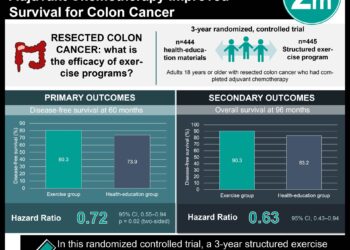2 Minute Medicine Rewind October 12 – 18, 2015
Neonatal glycemia and neurodevelopmental outcomes at 2 years
Neonatal hypoglycemia is common and when prolonged may result in brain injury. The effect of acute and brief hypoglycemia on neurologic development, however, has not yet been well defined. To investigate the relationship between low glucose concentrations in the neonatal period and impact on neuropsychological development, 528 neonates considered at risk for hypoglycemia (i.e. maternal diabetes, preterm birth, low birth weight) were studied in this prospective cohort study, where neonates were treated to maintain a blood glucose concentration of at least 47 mg/dL (2.6 mmol/L) and monitored for up to 7 days for interstitial glucose concentrations. Assessment at 2 years included Bayley Scales of Infant Development III (BSID-III) and tests of executive and visual function. At 2 years of follow-up, the risk of neurosensory impairment (RR 0.95, 95% CI 0.75-1.20, p = 0.67) or processing difficulty (RR 0.92, 95% CI 0.56-1.5, p = 0.74) was not significantly higher among children treated for neonatal hypoglycemia, compared to children without neonatal hypoglycemia. With respect to social and emotional adaptation, children with neonatal hypoglycemia had marginally better BSID-III scores (mean difference in scores 3.5, 95% CI 0.4-6.5, p = 0.02). The risk of abnormal neurodevelopment was also not increased among children with unrecognized hypoglycemia as measured by a low interstitial glucose concentration (RR 1.01, 95% CI 0.66-1.54, p = 0.98). This study shows that neonatal hypoglycemia is not associated with adverse neurologic outcomes when treatment is provided to maintain a blood glucose concentration of at least 47 mg/dL.
Clinical factors associated with remission of obesity-related comorbidities after bariatric surgery
Over 1 billion people worldwide are affected by obesity. While behavioural and pharmacological treatments may lead to modest weight loss and improvement in obesity-related comorbidities, bariatric surgery offers greater sustained weight loss and improvements in obesity-related comorbidities. It is unknown which factors identify patients that experience complete remission of comorbidities postoperatively. In this retrospective cohort study, 33, 718 patients that underwent Roux-en-Y gastric bypass (RYGB) or adjustable gastric banding (AGB) were followed up for 18 months to estimate the improvement in obesity-related comorbidities after bariatric surgery to identify clinical factors associated with these responses. Participant data was derived from healthcare claims and prescription fills data. In their multivariate logistic regression model to identify predictors of remission of type II diabetes, researchers found that, age (RGYB: OR 0.98, 95% CI 0.96-0.99; AGB: OR 0.98, 95% CI 1.04-1.35), preoperative insulin use (RGYB: OR 0.14, 95% CI 0.11-0.17; AGB: OR 0.17, 95% CI 0.13-0.23), preoperative sulfonylurea use (RGYB: OR 0.62, 95% CI 0.50-0.75; AGB: OR 0.45, 95% CI 0.36-0.57) and other antidiabetic medication use (RGYB: OR 0.75, 95% CI 0.57-0.98; AGB: OR 0.51, 95% CI 0.36-0.71) were significantly associated with of remission of type II diabetes after procedure. For remission of hypertension, age (RYGB: OR 0.96, 95% CI, 0.96-0.97; AGB: OR 0.97, 95% CI 0.96-0.98), number of preoperative antihypertensive medications (RYGB: OR 0.10, 95% CI 0.067-0.16; AGB: OR 0.24, 95% CI 0.14-0.41), and preoperative diuretic use (RYGB: OR 1.73, 95% CI, 1.46-2.04; AGB: OR 1.65, 95% CI 1.38-1.97) were significantly associated with response after both procedures. This identified a number of clinical factors associated with an increased likelihood of comorbidity remission after bariatric surgery.
Success rates of percutaneous coronary intervention (PCI) are significantly lower for chronic total occlusion (CTO) of coronary arteries compared to those for non-occluded lesions. Cardiac magnetic resonance (MR) imaging can allow for the evaluation of coronary artery disease and improved pre-procedural planning. In this prospective cohort study of 96 CTO lesions in 93 patients, success rates of PCIs were compared to different signal intensity (SI) patterns determined through coronary MR angiography at 1.5 T. Researchers found areas of continuous high SI in 42 lesions (44%), of which 40 (95%) were successfully treated with PCI. Thirty-eight (72%) of 53 lesions with low SI or interrupted high SI throughout the CTO segments were successfully treated with PCI. In multivariate logistic regression, cardiac MR features of lesion length (OR 0.88, 95% CI 0.81-0.95) and the presence of continuous high-SI areas (OR 8.20, 95% CI 1.08-62.15) were statistically significant predictors of PCI success. This study therefore shows that lesion length and continuous areas of high SI as measured by coronary MR angiography may predict improved success rates with PCI.
Back pain accounts for 2-5% of all physician visits. While guidelines advise delaying referral to physical therapy or other specialists to permit spontaneous recovery, recent observational studies have indicated that early physical therapy may reduce the risk of invasive procedures, when compared to delayed referral. In this randomized clinical trial, 220 patients were randomized to receive early physical therapy or usual care to evaluate whether early physical therapy is more effective in improving disability for patients with low back pain (LBP) after 3 months, as measured using the Oswestry Disability Index (ODI) score. The ODI assesses limitations due to LBP (minimum clinically important difference of 6 points). Early physical therapy consisted of 4 sessions of manipulation and exercise. Researchers found that individuals that received early physical therapy demonstrated significant improvement compared to usual care (ODI score) at 3 months (mean difference -3.2, 95% CI -5.9 to -0.47, p = 0.02). A significant difference between groups was also found after 4 weeks (mean difference -3.5, 95% CI -6.8 to -0.08, p = 0.045), however there was no significant difference between groups after 1 year of follow-up. In addition, there was no improvement in pain intensity at 4 weeks, 3 months, or 1 year of follow-up. This study therefore shows that adults with LBP may only minorly benefit from early physical therapy compared to usual care.
Phase II Pilot Study of Vemurafenib in Patients With Metastatic BRAF-Mutated Colorectal Cancer
BRAF gene mutations are seen in 5-15% of colorectal cancer (CRC) cases. These mutations are present more often in right-sided tumors, and are more likely to present with poorly differentaiated, node-positive neoplasms. The mutation of a valine to glutamae in codon 600, specifically, in the BRAF kinase domain (V600E) accounts for approximately 95% of activating mutations in BRAF in CRC. Vemurafenib is a kinase inhibitor designed to have increased affinity for this mutated form of BRAF, and has demonstrated a high response rate with prolonged progression-free survival in BRAF mutant melanoma. In this multicenter prospective cohort study, 21 patients with metastatic CRC and confirmed V600E-positive BRAF were given 960 mg of vemurafenib to explore the biology and potential predictive markers of response to therapy. All except one patient had received prior chemotherapy in the metastatic setting, of which only 3 achieved a partial response to prior treatment. Researchers found that there were no complete responses to the treatment, although 1 patient had a confirmed partial response durable for 21 weeks, and 7 had stable disease for at least 8 weeks (range 8-50 weeks). Ten patients had some degree of tumor shrinkage. The median progression-free survival was 2.1 months (range 0.4-11.6 months), where 2 patients were free from progression for over 6 months. The median overall survival time was 7.7 months (range 1.4-13.1 months). Baseline tumor tissue was also analyzed for molecule and protein biomarkers. Patterns of concurrent mutations, microsatellite instability status, CpG island methylation status, PTEN loss, EGFR expression, and copy number alterations were not associated with clinical benefit. KRAS and NRAS mutations were detected in 9 out of 16 evaluable tumors (56%) with a median allele frequency of 0.21% (IQR 0.18-0.42%), and appeared to be involved in mechanisms of acquired resistance in vemurafenib-sensitive patient-derived xenograft models. This study therefore shows that vemurafenib may not have meaningful clinical activity in CRC patients with BRAF V600E mutations.
Image: PD
©2015 2 Minute Medicine, Inc. All rights reserved. No works may be reproduced without expressed written consent from 2 Minute Medicine, Inc. Inquire about licensing here. No article should be construed as medical advice and is not intended as such by the authors or by 2 Minute Medicine, Inc.









